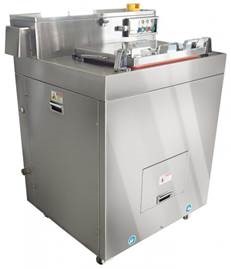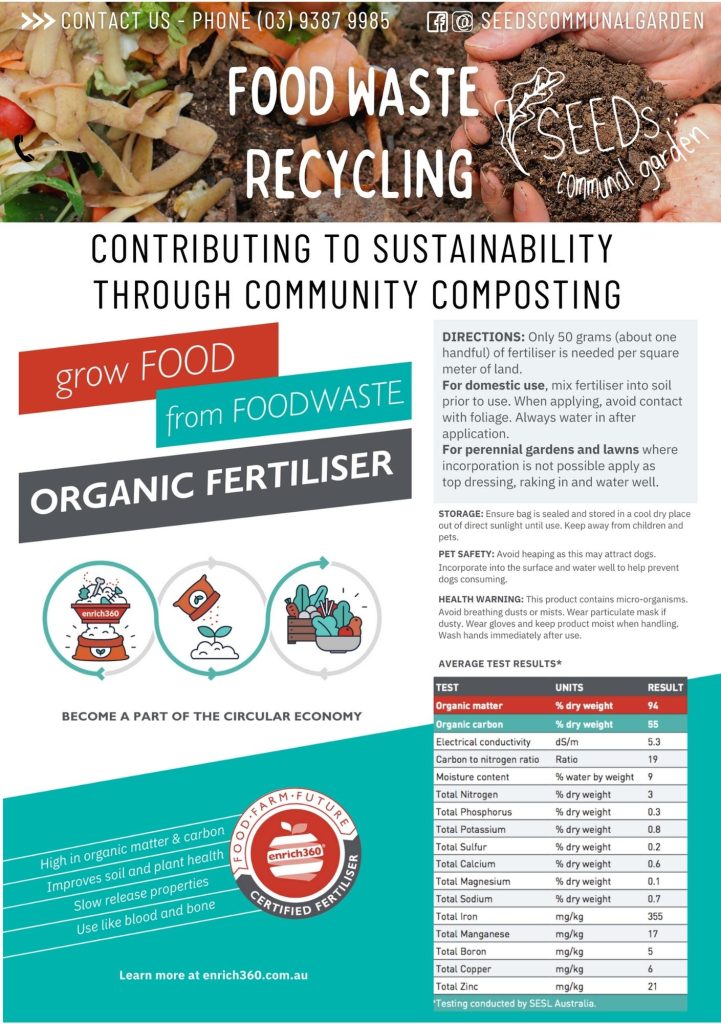Because of the opportunities that it can help us to create for the people we support while also helping our environment and community by turning 20 tonnes of waste food products per year into usable fertiliser.
We want to contribute to making our environment better and healthier. At the same time we know that we are a Disability Support service and our main goal is to create opportunities for people we support.
This project will connect people we support to new opportunities while diverting food waste from landfill and creating a reusable resource.
The dehydrator will enable us to establish a social enterprise. In general a social enterprise is a business whose primary purpose is to address a social or environmental challenge rather than creating profit for owners or shareholders. It reinvests its profits back into the enterprise. The challenge for our enterprise is to provide valued roles and increased opportunities for connections for people we support who struggle to take on traditional work hours and roles and, to divert food from land fill into a useful reusable resource.
The creation of the ability to quickly compost/dehydrate materials in an area where the population is increasing, people have less available land mass to do their own composting and there is a thriving food industry is a good start for this enterprise. While we have a long way to go it is easy to imagine a broad range of work roles for our participants in areas including collection processes, managing the composting and distribution. Along with creating these opportunities for people we care about, we plan to divert 20 tonnes of food waste from land fill, into usable fertiliser, each year.
Our machine was installed at the end of May and is already producing fertiliser every day.
We know that there are many people in the Milparinka Community who are very interested in both environmental sustainability and creating new opportunities for people we support – if you have any ideas that you would like to contribute in regards to this please feel free to get in contact with us.
Some info on what the dehydrator does and how we got it..
Milparinka’s Food Waste Recovery Program is supported by the Circular Economy Communities Fund delivered by Sustainability Victoria under the Victorian Government’s circular economy plan, Recycling Victoria: a new economy. We were awarded over $46,000 in funding through the Victorian Government’s Circular Economy.
Food waste is placed inside the dehydrator where it goes through a fully automatic process of dehydration, sterilisation and volume reduction.
Once the food waste is all loaded the rest is automatic. It takes approximately 8 to 10 hours to complete. Everything goes in; meat, fish, fruit, vegetables, coffee grinds, flower displays. The entire procedure happens in a closed chamber so it’s safe and odour issues are non-existent.
The product from the system is utilised as a directly applied soil amendment, a fertiliser or a compost enhancer. Instead of the greenhouse gases and seepage that would be generated in landfill, the food waste is being converted into a sustainable resource.
For more information about Sustainability Victoria please see their web Page: https://www.sustainability.vic.gov.au/


SO YOU KNOW
As a responsible community organisation we are constantly trying to ensure that we are environmentally responsible and limit our environmental footprint. Some of the ways that we do this are:
We have the food dehydrator which will recycle 20 tonnes of food waste per year back into our community as garden fertiliser.
We have 5, 10,000 litre water tanks for watering our communal garden, and Solar panels which have significantly reduced our use of external power
We currently have a manual, but very large compost system, and that will continue, not just for our waste but for waste that is dropped off by people who live in the locally such as community members, cafes and businesses ( this creates a foothold for our new enterprise)
We have recycle systems and pickups for paper, cardboard and other products.
We have a very large bank of solar panels to reduce our uses of power from the grid.
We grow food that we share with others, including organisations that provide meals to people who are homeless and do not have enough food.
THE INFORMATION BELOW PROVIDES THE DIRECETIONS FOR THE USE OF THE FERTILSER AND CONTENT DETAILS FOR THE FERTILSER THAT IS PRODUCED USING OUR DEHYDRATOR.
